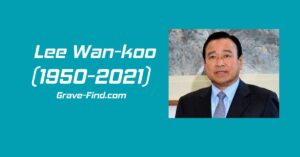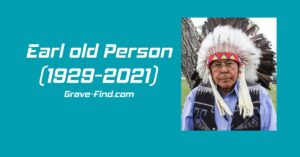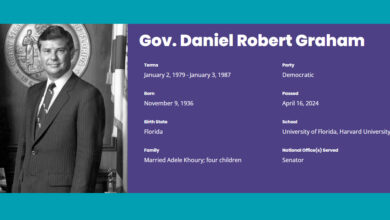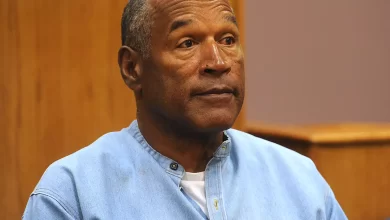Colin Powell (1937-2021) American Statesman
Colin Powell (1937-2021) Find a Grave Memorial
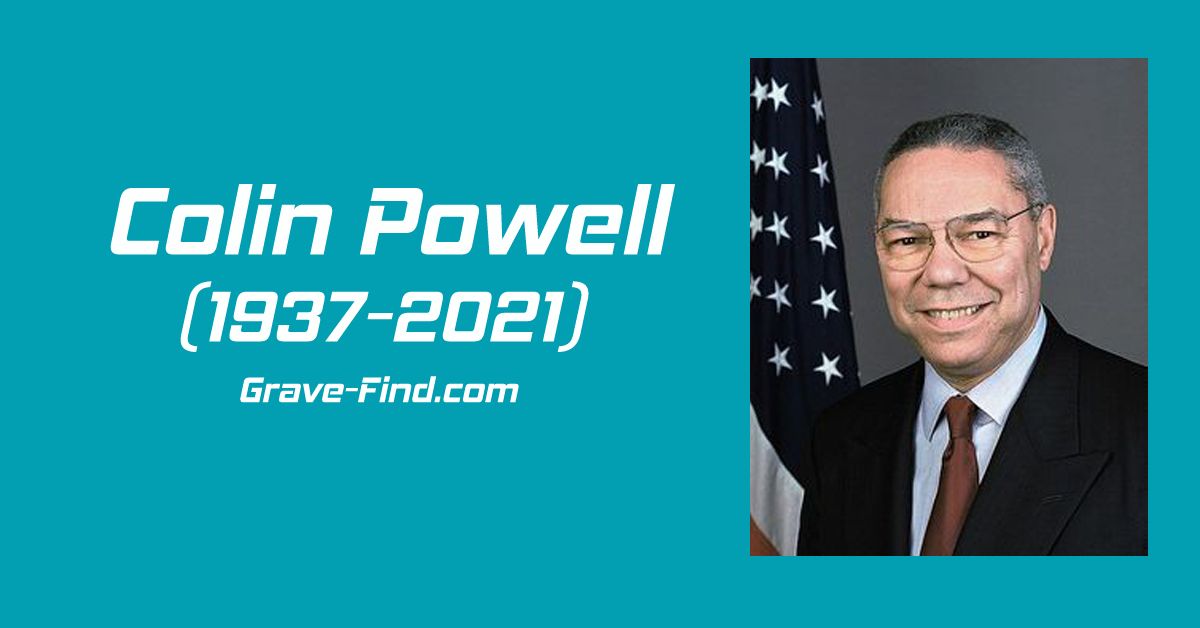
Colin Powell (1937-2021) American Statesman, Find a grave Colin Powell Find a grave, Colin Powell wiki, Colin Powell biography, family, life
Colin Powell Find a Grave
| Name | Colin Powell |
| Age | 84 Years |
| Birth | April 5 1937 |
| Birthplace | Harlem, New York County (Manhattan), New York, USA |
| Death | October 18 2021 |
| Deathplace | Bethesda, Montgomery County, Maryland, USA |
| Profession | American Statesman and Military Leader |
| Burial | Arlington National Cemetery Arlington, Arlington County, Virginia, USA |
| Nationality | American |
Colin Powell American Statesman and Military Leader
Short Bio
He served as the 65th Secretary of State under President George W. Bush from January 20, 2001 to January 26, 2005. He also served as the 12th Chairman of the Joint Chiefs of Staff under both Presidents George H.W. Bush and William J. Clinton from October 1, 1989 to September 30, 1993.
He grew up in the Harlem and South Bronx sections of New York City and attended the City College of New York, where he served in the R.O.T.C.. Upon graduation, he entered the Army and later served in Vietnam in both 1962-1963 and 1968-1969. He went on to study at George Washington University.
In 1972, he took his first political position, first as a White House fellow and then as an assistant to Frank Carlucci, the assistant director of the Office of Management and Budget.
He continued to serve in government positions, both at the Pentagon and the White House, throughout the 1970s and 1980s, before being appointed National Security Advisor in 1987. He served in this position until 1989. That year, he became a four-star general and was appointed Chairman of the Joint Chiefs of Staff. He went on to play a leading role in both the invasion of Panama and the Desert Shield and Desert Storm portion of the Persian Gulf War of 1990-1991. In 1993, he retired from the military.
He was appointed Secretary of State by President George W. Bush in 2001 and went on to serve for the next four years. During his tenure, he unsuccessfully sought broader support for the Iraq War and in 2003, made a controversial speech before the United Nations that was later found to be based on faulty intelligence. He resigned his post in January of 2005 and continued in the public arena until his passing. He wrote several books including his autobiography “My American Journey” in 1995 and “It Worked for Me: In Life and Leadership” in 2012.
Colin Powell (1937-2021) Biography
Colin Luther Powell was an American statesman, diplomat, and four-star general who served as the 65th United States secretary of state from 2001 to 2005. He was the first African-American secretary of state. He served as the 16th United States national security advisor from 1987 to 1989 and as the 12th chairman of the Joint Chiefs of Staff from 1989 to 1993.
Powell was born in New York City in 1937 and was raised in the South Bronx. His parents, Luther and Maud Powell, immigrated to the United States from Jamaica. He was educated in the New York City public schools and received a bachelor’s degree in geology from the City College of New York (CCNY). He also participated in ROTC at CCNY and received a commission as an Army second lieutenant upon graduation in June 1958. He was a professional soldier for 35 years, during which time he held many command and staff positions and rose to the rank of four-star general. He was Commander of the US Army Forces Command in 1989.
Powell’s last military assignment, from October 1989 to September 1993, was as Joint Chiefs of Staff chairman, the highest military position in the Department of Defense. During this time, he oversaw 28 crises, including the invasion of Panama in 1989 and Operation Desert Storm in the Persian Gulf War against Iraq in 1990–1991. He formulated the Powell Doctrine, which limits American military action unless it satisfies criteria regarding American national security interests, overwhelming force, and widespread public support.
He was the 65th United States secretary of state, serving under Republican President George W. Bush. As secretary of state, Powell gave a speech before the United Nations regarding the rationale for the Iraq War. He later admitted that the speech contained substantial inaccuracies. He was forced to resign after Bush was reelected in 2004.
In 1995, Powell wrote his autobiography, My American Journey, and then in retirement another book, It Worked for Me, Lessons in Life and Leadership (2012). He pursued a career as a public speaker, addressing audiences across the country and abroad. Before his appointment as secretary of state, Powell chaired America’s Promise. In the 2016 United States presidential election, Powell, who was not a candidate, received three electoral votes from Washington for the office of President of the United States.
Powell won numerous US and foreign military awards and decorations. His civilian awards included the Presidential Medal of Freedom (twice), the Congressional Gold Medal, the Presidential Citizens Medal, and the Secretary’s Distinguished Service Award.
Powell, who was being treated for blood cancer, that affects the immune system, died from complications of COVID-19 on October 18, 2021.
Colin Powell (1937-2021) Early life and Education
Colin Luther Powell was born on April 5, 1937,in Harlem, a neighborhood in the New York City borough of Manhattan, to Jamaican immigrants, Maud Ariel (née McKoy) and Luther Theophilus Powell.His parents were both of mixed African and Scottish ancestry.Luther worked as a shipping clerk and Maud as a seamstress.Powell was raised in the South Bronx and attended the now closed Morris High School, from which he graduated in 1954.
While at school, Powell worked at a local baby furniture store, where he picked up Yiddish from the Eastern European Jewish shopkeepers and some of the customers. He once spoke to a Jewish reporter in Yiddish, much to the man’s surprise.He also served as a Shabbos goy, helping Orthodox families with needed tasks on the Sabbath.He received a Bachelor of Science degree in geology from the City College of New York in 1958 and said that he was a “C average” student. Powell also graduated from George Washington University with an MBA in 1971 and a Honorary Doctor of Public Service in 1990.
Despite his parents’ pronunciation of his name as (KOLL-in), Powell pronounced his name KOHL-in from childhood on after the World War II flyer Colin P. Kelly Jr.
Colin Powell Military career
Powell was a professional soldier for 35 years, holding a variety of command and staff positions and rising to the rank of general.
Training
While attending the City College of New York, Powell joined the Reserve Officers’ Training Corps (ROTC).He described the experience as one of the happiest experiences of his life. According to Powell:
It was only once I was in college, about six months into college when I found something that I liked, and that was ROTC, Reserve Officer Training Corps in the military. And I not only liked it, but I was pretty good at it. That’s what you really have to look for in life, something that you like, and something that you think you’re pretty good at. And if you can put those two things together, then you’re on the right track, and just drive on.
As a cadet, Powell joined the Pershing Rifles, the ROTC fraternal organization and drill team begun by General John Pershing.
Upon graduation, he received a commission as an Army second lieutenant;at this time, the Army was newly desegregated. He underwent training in the state of Georgia, where he was refused service in bars and restaurants because of the color of his skin. After attending basic training at Fort Benning, Powell was assigned to the 48th Infantry, in West Germany, as a platoon leader.
Vietnam War
Captain Powell served a tour in Vietnam as a South Vietnamese Army (ARVN) advisor from 1962 to 1963. While on patrol in a Viet Cong-held area, he was wounded by stepping on a punji stake.[28] The large infection made it difficult for him to walk, and caused his foot to swell for a short time, shortening his first tour.
Powell returned to Vietnam as a major in 1968, serving as assistant chief of staff of operations for the 23rd (Americal) Infantry Division. During the second tour in Vietnam he was decorated with the Soldier’s Medal for bravery after he survived a helicopter crash and single-handedly rescued three others, including division commander Major General Charles M. Gettys, from the burning wreckage.
My Lai massacre inquiry
Soldiers actively hunted, herded, and killed elderly people, children, infants, and raped women while other Soldiers [sic] looked on and did nothing to stop the massacre. An estimated 350 to 500 unarmed civilians died in My Lai … MAJ Colin Powell, a recently assigned Deputy G3, investigated the allegations described in the [Glen] letter. He proved unable to uncover either wide-spread unnecessary killings, war crimes, or any facts related to My Lai .
— US Army Center for the Army Profession and Leadership, My Lai at 50: Written Case Study
Powell was charged with investigating a detailed letter by 11th Light Infantry Brigade soldier Tom Glen, which backed up rumored allegations of the 1968 Mỹ Lai massacre. Powell wrote: “In direct refutation of this portrayal is the fact that relations between American soldiers and the Vietnamese people are excellent.”Later, Powell’s assessment would be described as whitewashing the news of the massacre, and questions would continue to remain undisclosed to the public. In May 2004, Powell said to television and radio host Larry King, “I was in a unit that was responsible for My Lai. I got there after My Lai happened. So, in war, these sorts of horrible things happen every now and again, but they are still to be deplored.”
After the Vietnam War When he returned to the US from Vietnam in 1971, Powell earned a Master of Business Administration degree from George Washington University in Washington, D.C. He later served a White House Fellowship under President Richard Nixon from 1972 to 1973. During 1975–1976 he attended the National War College, Washington, D.C.
In his autobiography, My American Journey, Powell named several officers he served under who inspired and mentored him. As a lieutenant colonel serving in South Korea, Powell was very close to General Henry “Gunfighter” Emerson. Powell said he regarded Emerson as one of the most caring officers he ever met. Emerson insisted his troops train at night to fight a possible North Korean attack, and made them repeatedly watch the television film Brian’s Song to promote racial harmony. Powell always professed that what set Emerson apart was his great love of his soldiers and concern for their welfare. After a race riot occurred, in which African-American soldiers almost killed a white officer, Powell was charged by Emerson to crack down on black militants; Powell’s efforts led to the discharge of one soldier, and other efforts to reduce racial tensions. During 1976–1977 he commanded the 2nd Brigade of the 101st Airborne Division.
National Security Advisor and other advisory roles
In the early 1980s, Powell served at Fort Carson, Colorado. After he left Fort Carson, Powell became senior military assistant to Secretary of Defense Caspar Weinberger, whom he assisted during the 1983 invasion of Grenada and the 1986 airstrike on Libya.
Under Weinberger, Powell was also involved in the unlawful transfer of US-made TOW anti-tank missiles and Hawk anti-aircraft missiles from Israel to Iran as part of the criminal conspiracy that would later become known as the Iran–Contra affair. In November 1985, Powell solicited and delivered to Weinberger a legal assessment that the transfer of Hawk missiles to Israel or Iran, without Congressional notification, would be “a clear violation” of the law.Despite this, thousands of TOW missiles and hundreds of Hawk missiles and spare parts were transferred from Israel to Iran until the venture was exposed in a Lebanese magazine, Ash-Shiraa, in November 1986. According to Iran-Contra Independent Counsel Lawrence E. Walsh, when questioned by Congress, Powell “had given incomplete answers” concerning notes withheld by Weinberger and that the activities of Powell and others in concealing the notes “seemed corrupt enough to meet the new, poorly defined test of obstruction.”403 Following his resignation as Secretary of Defense, Weinberger was indicted on five felony charges, including one count Obstruction of Congress for concealing the notes.Powell was never indicted by the Independent Counsel in connection with the Iran-Contra affair.
In 1986, Powell took over the command of V Corps in Frankfurt, Germany, from Robert Lewis “Sam” Wetzel. The next year, he served as United States Deputy National Security Advisor, under Frank Carlucci.
Following the Iran–Contra scandal, Powell became, at the age of 49, Ronald Reagan’s National Security Advisor, serving from 1987 to 1989 while retaining his Army commission as a lieutenant general. He helped negotiate a number of arms treaties with Mikhail Gorbachev, the leader of the Soviet Union.
In April 1989, after his tenure with the National Security Council, Powell was promoted to four-star general under President George H. W. Bush and briefly served as the Commander in Chief, Forces Command (FORSCOM), headquartered at Fort McPherson, Georgia, overseeing all Army, Army Reserve, and National Guard units in the Continental US, Hawaii, and Puerto Rico. He became the third general since World War II to reach four-star rank without ever serving as a division commander, joining Dwight D. Eisenhower and Alexander Haig.
Later that year, President George H. W. Bush selected him as Chairman of the Joint Chiefs of Staff.
Chairman of the Joint Chiefs of Staff
Powell’s last military assignment, from October 1, 1989, to September 30, 1993, was as the 12th chairman of the Joint Chiefs of Staff, the highest military position in the Department of Defense. At age 52, he became the youngest officer, and first Afro-Caribbean American, to serve in this position. Powell was also the first JCS chair who received his commission through ROTC.
During this time, Powell oversaw responses to 28 crises, including the invasion of Panama in 1989 to remove General Manuel Noriega from power and Operation Desert Storm in the 1991 Persian Gulf War. During these events, Powell earned the nickname “the reluctant warrior”—although Powell himself disputed this label, and spoke in favor of the first Bush administration’s Gulf War policies.
As a military strategist, Powell advocated an approach to military conflicts that maximizes the potential for success and minimizes casualties. A component of this approach is the use of overwhelming force, which he applied to Operation Desert Storm in 1991. His approach has been dubbed the Powell Doctrine.Powell continued as chairman of the JCS into the Clinton presidency. However, as a realist, he considered himself a bad fit for an administration largely made up of liberal internationalists.He clashed with then-US ambassador to the United Nations Madeleine Albright over the Bosnian crisis, as he opposed any military intervention that did not involve US interests.
Powell also regularly clashed with Secretary of Defense Leslie Aspin, whom he was initially hesitant to support after Aspin was nominated by President Clinton.During a lunch meeting between Powell and Aspin in preparation of Operation Gothic Serpent, Aspin was more focused on eating salad instead of listening and paying attention to Powell’s presentation on military operations. The incident caused Powell to grow more irritated towards Aspin and led to his early resignation on September 30, 1993. Powell was succeeded temporarily by Vice Chairman of the Joint Chiefs of Staff Admiral David E. Jeremiah, who took the position as Acting Chairman of the Joint Chiefs of Staff. Soon after Powell’s resignation, on October 3–4, 1993, the Battle of Mogadishu, the aim of which was to capture Somali warlord Mohamed Farrah Aidid, was initiated and ended in disaster. Powell later defended Aspin, saying in part that he could not fault Aspin for Aspin’s decision to remove a Lockheed AC-130 from the list of armaments requested for the operation.
Powell took an early resignation from his tenure as Chairman of the Joint Chiefs of Staff on September 30, 1993. During his chairmanship of the JCS, there was discussion of awarding Powell a fifth star, granting him the rank of General of the Army. But even in the wake of public and Congressional pressure to do so, Clinton-Gore presidential transition team staffers decided against it.
Colin Powell Potential presidential candidate
Powell’s experience in military matters made him a very popular figure with both American political parties. Many Democrats admired his moderate stance on military matters, while many Republicans saw him as a great asset associated with the successes of past Republican administrations. Put forth as a potential Democratic vice presidential nominee in the 1992 US presidential election or even potentially replacing Vice President Dan Quayle as the Republican vice presidential nominee, Powell eventually declared himself a Republican and began to campaign for Republican candidates in 1995.He was touted as a possible opponent of Bill Clinton in the 1996 US presidential election, possibly capitalizing on a split conservative vote in Iowa and even leading New Hampshire polls for the GOP nomination, but Powell declined, citing a lack of passion for politics.Powell defeated Clinton 50–38 in a hypothetical match-up proposed to voters in the exit polls conducted on Election Day. Despite not standing in the race, Powell won the Republican New Hampshire Vice-Presidential primary on write-in votes.
In 1997, Powell founded America’s Promise with the objective of helping children from all socioeconomic sectors. That same year saw the establishment of The Colin L. Powell Center for Leadership and Service. The mission of the center is to “prepare new generations of publicly engaged leaders from populations previously underrepresented in public service and policy circles, to build a strong culture of civic engagement at City College, and to mobilize campus resources to meet pressing community needs and serve the public good.”
Powell was mentioned as a potential candidate in the 2000 US presidential election, but again decided against running. Once Texas Governor George W. Bush secured the Republican nomination, Powell endorsed him for president and spoke at the 2000 Republican National Convention. Bush won the general election and appointed Powell as secretary of state in 2001.
In the electoral college vote count of 2016, Powell received three votes for president from faithless electors from Washington.
Colin Powell Life after diplomatic service
After retiring from the role of Secretary of State, Powell returned to private life. In April 2005, he was privately telephoned by Republican senators Lincoln Chafee and Chuck Hagel, at which time Powell expressed reservations and mixed reviews about the nomination of John Bolton as ambassador to the United Nations, but refrained from advising the senators to oppose Bolton (Powell had clashed with Bolton during Bush’s first term). The decision was viewed as potentially dealing significant damage to Bolton’s chances of confirmation. Bolton was put into the position via a recess appointment because of the strong opposition in the Senate.
On April 28, 2005, an opinion piece in The Guardian by Sidney Blumenthal (a former top aide to President Bill Clinton) claimed that Powell was in fact “conducting a campaign” against Bolton because of the acrimonious battles they had had while working together, which among other things had resulted in Powell cutting Bolton out of talks with Iran and Libya after complaints about Bolton’s involvement from the British. Blumenthal added that “The foreign relations committee has discovered that Bolton made a highly unusual request and gained access to 10 intercepts by the National Security Agency. Staff members on the committee believe that Bolton was probably spying on Powell, his senior advisors and other officials reporting to him on diplomatic initiatives that Bolton opposed.”
In September 2005, Powell criticized the response to Hurricane Katrina, and said thousands of people were not properly protected because they were poor, rather than because they were black.
Colin Powell (1937-2021) American Statesman
On January 5, 2006, he participated in a meeting at the White House of former Secretaries of Defense and State to discuss United States foreign policy with Bush administration officials. In September 2006, Powell sided with more moderate Senate Republicans in supporting more rights for detainees and opposing President Bush’s terrorism bill. He backed Senators John Warner, John McCain, and Lindsey Graham in their statement that US military and intelligence personnel in future wars will suffer for abuses committed in 2006 by the US in the name of fighting terrorism. Powell stated that “The world is beginning to doubt the moral basis of our fight against terrorism.”
In 2007, he joined the board of directors of Steve Case’s new company Revolution Health. Powell also served on the Council on Foreign Relations Board of directors.
In 2008, Powell served as a spokesperson for National Mentoring Month, a campaign held each January to recruit volunteer mentors for at-risk youth.
Soon after Barack Obama’s 2008 election, Powell began being mentioned as a possible cabinet member.He was not nominated.
In September 2009, Powell advised President Obama against surging US forces in Afghanistan.The president announced the surge the following December.
On March 14, 2014, Salesforce.com announced that Powell had joined its board of directors.
Political positions
Powell was a moderate Republican from 1995 until 2021, when he became an independent following the 2021 United States Capitol attack.He was pro-choice regarding abortion, and expressed some support for an assault weapons ban.He stated in his autobiography that he supported affirmative action that levels the playing field, without giving a leg up to undeserving persons because of racial issues. Powell originally suggested the don’t ask, don’t tell policy to President Clinton, though he later supported its repeal as proposed by Robert Gates and Admiral Mike Mullen in January 2010, saying “circumstances had changed”. According to Mark Perry, however, Powell actually disagreed with the policy from the beginning.
Powell gained attention in 2004 when, in a conversation with British Foreign Secretary Jack Straw, he reportedly referred to neoconservatives within the Bush administration as “fucking crazies”.
In a September 2006 letter to John McCain, Powell expressed opposition to President Bush’s push for military tribunals of those formerly and currently classified as enemy combatants. Specifically, he objected to the effort in Congress to “redefine Common Article 3 of the Geneva Convention.” He also asserted: “The world is beginning to doubt the moral basis of our fight against terrorism.”
2016 presidential election
Powell was very vocal on the state of the Republican Party. Speaking at a Washington Ideas forum in early October 2015, he warned the audience that the Republican Party had begun a move to the fringe right, lessening the chances of a Republican White House in the future. He also remarked on Republican presidential candidate Donald Trump’s statements regarding immigrants, noting that there were many immigrants working in Trump hotels.
In March 2016, Powell denounced the “nastiness” of the 2016 Republican primaries during an interview on CBS This Morning. He compared the race to reality television, and stated that the campaign had gone “into the mud.”
In August 2016, Powell accused the Hillary Clinton campaign of trying to pin her email controversy on him. Speaking to People magazine, Powell said, “The truth is, she was using [the private email server] for a year before I sent her a memo telling her what I did.”
On September 13, 2016, emails were obtained that revealed Powell’s private communications regarding both Donald Trump and Hillary Clinton. Powell privately reiterated his comments regarding Clinton’s email scandal, writing, “I have told Hillary’s minions repeatedly that they are making a mistake trying to drag me in, yet they still try,” and complaining that “Hillary’s mafia keeps trying to suck me into it” in another email. In another email discussing Clinton’s controversy, Powell said she should have told everyone what she did “two years ago”, and said that she has not “been covering herself with glory.” Writing on the 2012 Benghazi attack controversy surrounding Clinton, Powell said to then US Ambassador Susan Rice, “Benghazi is a stupid witch hunt.” Commenting on Clinton in a general sense, he mused that “Everything HRC touches she kind of screws up with hubris”, and in another email stated “I would rather not have to vote for her, although she is a friend I respect.”
Powell called Donald Trump a “national disgrace”, with “no sense of shame”. He wrote of Trump’s role in the birther movement, which he called “racist”. He suggested the media ignore Trump: “To go on and call him an idiot just emboldens him.” The emails were obtained by the media as the result of a hack.
Powell endorsed Clinton on October 25, 2016, stating it was “because I think she’s qualified, and the other gentleman is not qualified”.
Despite not running in the election, Powell received three electoral votes for president from faithless electors in Washington who had pledged to vote for Clinton, coming in third overall.After Barack Obama, he was the second black person to receive electoral votes in a presidential election.
Views on the Trump administration
In an interview in October 2019, Powell warned that the GOP needed to “get a grip” and put the country before their party, standing up to President Trump rather than worrying about political fallout. “When they see things that are not right, they need to say something about it because our foreign policy is in shambles right now, in my humble judgment, and I see things happening that are hard to understand,” Powell said. On June 7, 2020, Powell announced he would be voting for former Vice President Joe Biden in the 2020 presidential election.In August, Powell delivered a speech in support of Biden’s candidacy at the 2020 Democratic National Convention.
In January 2021, after the Capitol building was attacked by Trump supporters, Powell left the Republican Party.
Colin Powell Personal life
Powell married Alma Johnson on August 25, 1962. Their son, Michael Powell, was the chairman of the Federal Communications Commission (FCC) from 2001 to 2005. His daughters are Linda Powell, an actress, and Annemarie Powell. As a hobby, Powell restored old Volvo and Saab automobiles. In 2013, he faced questions about his relationship with the Romanian diplomat Corina Crețu, after a hacked AOL email account had been made public. He acknowledged a “very personal” email relationship but denied further involvement. He was an Episcopalian.
Colin Powell American Statesman Death
On October 18, 2021, Powell, who was being treated for multiple myeloma,died at Walter Reed National Military Medical Center of complications from COVID-19 at the age of 84. He had been vaccinated, but his myeloma compromised his immune system; he also had early-stage Parkinson’s disease. President Joe Biden and four of the five living former presidents issued statements calling Powell as an American hero. Donald Trump disparaged him as having made “big mistakes” and as a “classic RINO”.


